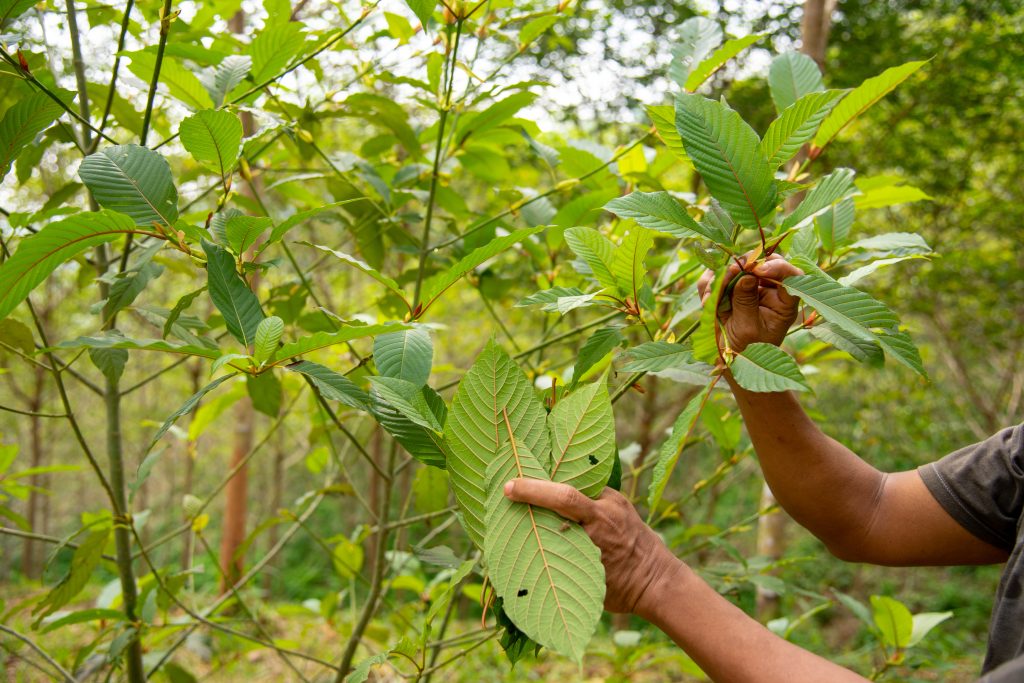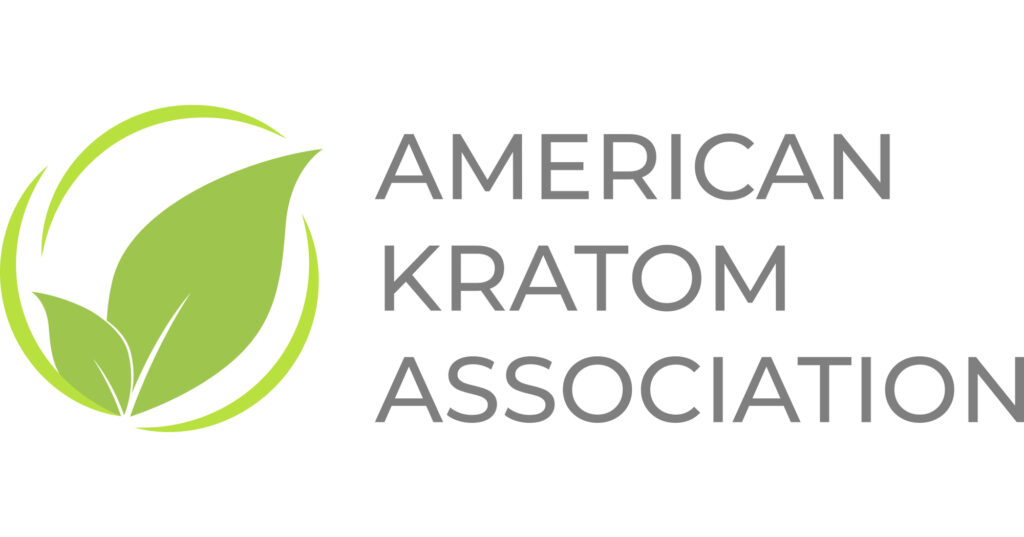The U.S. Kratom industry is booming like never before, fueled by increasing consumer interest and quality-focused production processes. According to one estimate, the U.S. Kratom industry is a massive $1 billion powerhouse that attracts imports from several South-East Asian countries like Indonesia, Thailand, Malaysia, Bali, and so on.
Kratom is extracted from Mitragyna speciosa, a wild plant belonging to the coffee family. As demand for Kratom surges, farmers in tropical Asia are turning to this “cash crop” for export-oriented opportunities. As the overseas demand for Kratom grows, it fuels deforestation, soil degradation, freshwater wastage, wild animal habitat loss, community dislocations, and countless other problems in this region. Entire ecologies are being endangered by unregulated farming. Not only the local population and communities are threatened, but the entire planet feels the effects of the ecological damage wreaked by unhinged Kratom supply chain practices.
Sustainable farming is the need of the hour. Sustainable farming is not only essential to preserve the planet and all its inhabitants but also to protect the industry against potential prohibitions that may arise to combat its impact.
How Sustainable Kratom Farming Protects Biodiversity
There are multiple dimensions to sustainable farming, each offering unique solutions to specific challenges arising from unfettered farming and deforestation. Here are the most common solutions employed by the sustainable farming industry:
- Agroforestry
Large-scale Kratom farming often entails clearing out huge swathes of forests for cultivation. This destroys local ecosystems, wildlife habitats, and biodiversity. It also contributes to soil erosion and climate change.
By integrating other trees into Kratom farms, soil erosion can be arrested, while allowing wildlife to thrive. In particular, indigenous plants and animal species are safeguarded and preserved, without being entirely driven away to an ever-smaller tract of land.
- Organic Farming
Chemical fertilizers, pesticides, and insecticides are known to wreak havoc on the delicate ecological balance. The residues often contaminate soil and inflict irreparable damage. Organic farming practices protect soil health while encouraging local biodiversity.
How Sustainable Kratom Processing Conserves Resources

The vast majority of Kratom farms in South-East Asian countries rely on outdated, decades-old agricultural methods to process the Kratom harvest. These methods are highly resource intensive and threaten the availability of resources to other food crops; not to mention their contribution to resource depletion. Innovative and eco-friendly processing methods can help address these problems in the following ways:
- Energy-efficient Drying
Traditional Kratom drying processes are energy-intensive and produce huge amounts of greenhouse gases. Using solar drying and heat recovery systems can slash down energy consumption and greenhouse gas emissions during Kratom processing.
- Waste Reduction and Recycling
Kratom processing generates huge quantities of organic waste. However, there are convenient, cheap, and even lucrative waste reduction and recycling options available. For instance, leftover plant material can be repurposed as compost or animal feed.
- Water Conservation
Kratom processing can utilize large quantities of water and put undue pressure on local freshwater resources. Innovative solutions like rainwater catchment, drip irrigation, low-energy spray irrigation, and so on, can conserve tremendous quantities of freshwater.
How Green Packaging & Can Help Protect The Environment
While Kratom production is largely concentrated in a handful of closely-knit countries in South-East Asia, it is consumed worldwide. Packaging, shipping, and last-mile delivery of Kratom to users worldwide consume enormous amounts of fossil fuel, generate vast quantities of non-recyclable packaging waste, and contribute heavily to greenhouse emissions. Fortunately, several emerging solutions are already addressing these supply chain issues:
- Eco-friendly Transportation
Electric and hybrid vehicles for transporting processed Kratom can drastically reduce greenhouse emissions, especially when the energy source is clean, such as solar, wind, or hydroelectric power. Advanced algorithms are also being utilized to optimize shipping routes to reduce fuel consumption and thereby reduce greenhouse emissions.
- Carbon Offsetting
Some aspects of logistics, such as container shipping, have a long way to go before it becomes energy-efficient. However, businesses can invest in carbon offset projects to bring down their carbon footprint.
- Minimal and Biodegradable Packaging
An overwhelming majority of the plastic is never recycled. Some estimates put recycled plastics at just 10% of the plastic waste. Environmentally-conscious businesses are battling plastic pollution by using biodegradable packaging materials like paper, cardboard, and plant-based materials. Where it’s impossible to use biodegradable packaging, some businesses use minimal packaging to minimize their plastic waste.

How Ethical Business Practices Are Making The Kratom Industry More Sustainable
Sustainable business practices not only focus on ecological footprint but also on local communities. Ethical business practices address the social responsibility of businesses that utilize the resources and hard work of the communities involved in their supply chain. Here are some ways the Kratom industry can engage in ethical business practices:
- Fair Wages and Humane Working Conditions
Overseas sourcing often gets mired in controversies involving child labor, slave labor, inhumane working conditions, and so on. By enforcing international labor standards throughout the supply chain and insisting suppliers or producers adhere to them, Kratom businesses can ensure that local communities are paid fair, competitive wages, and are not exploited.
- Support to Local Communities
The local populace, such as small-scale farmers, do not have the resources necessary to market and attract foreign Kratom importers. Therefore, they cannot capitalize on the economic opportunities available to large-scale producers. By sourcing from such small players, Kratom businesses can contribute to their economic prosperity.
Additionally, Kratom businesses can also invest in local community development projects, like healthcare, schools, and transportation. This can inspire loyalty and guarantee a reliable supply of Kratom too.
- Education and Training
Kratom businesses can educate the local producers on sustainable farming practices and give them access to learning resources to help them learn about innovative farming techniques. The transition will not only help save the environment but also contribute to the social and economic development of local communities.
Bottomline
In conclusion, at Phytoextractum, we believe that sustainable and responsible Kratom practices are of paramount importance. Our commitment is more than just a catchphrase; it’s a core pillar of our mission. We understand the environmental and social implications of Kratom production, which is why we source exclusively from farmers committed to fair trade practices, biodiversity preservation, and sustainable farming techniques. This means each product you purchase from us not only supports your well-being but also contributes towards the betterment of the communities involved in its production and the conservation of the environment. We are proud to be part of the solution, contributing to a sustainable future for both the Kratom industry and our planet.




